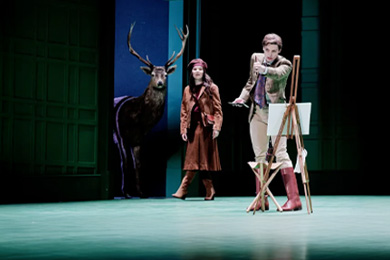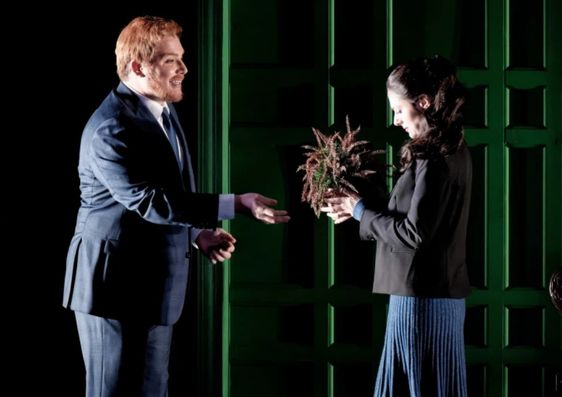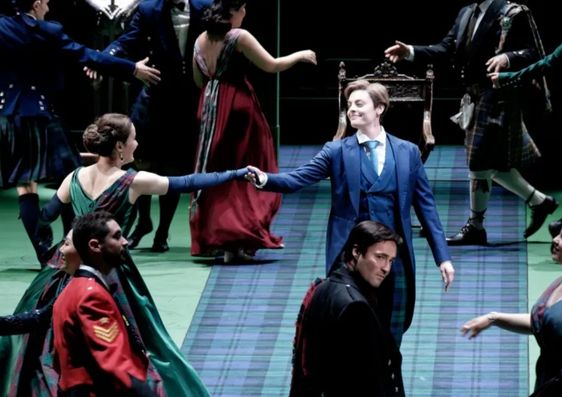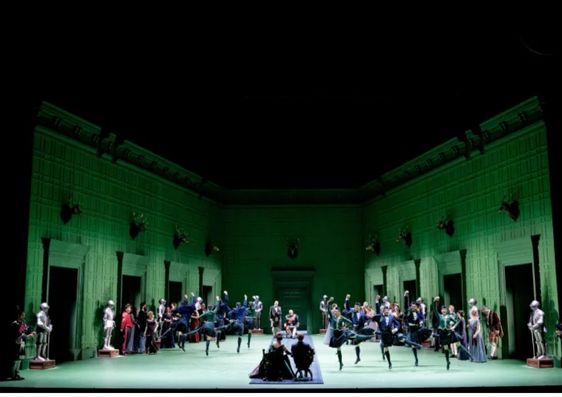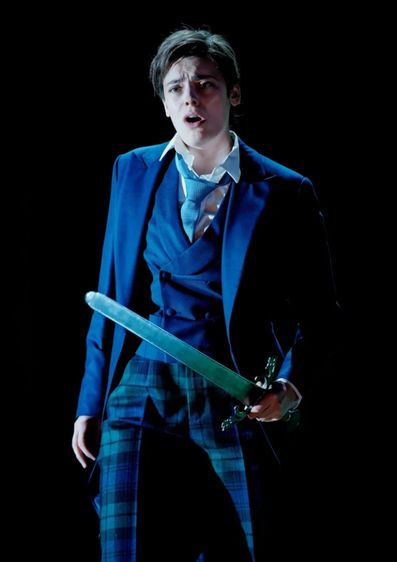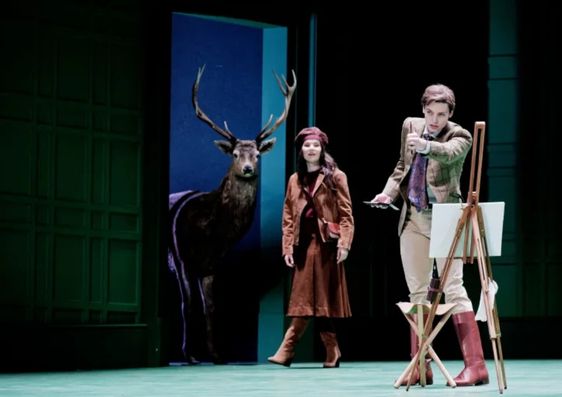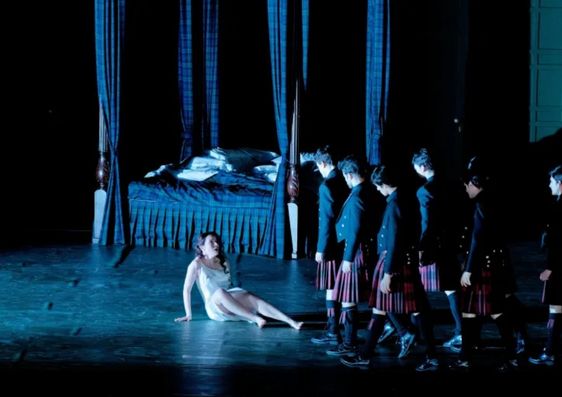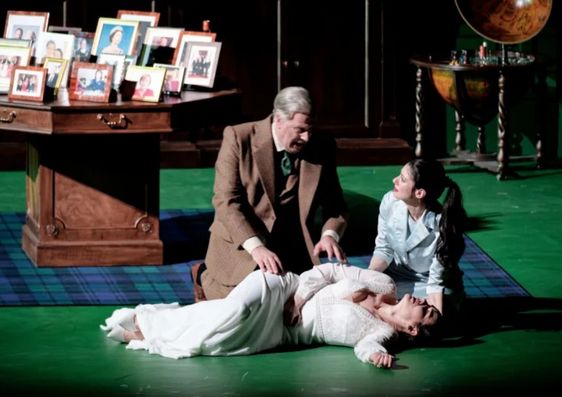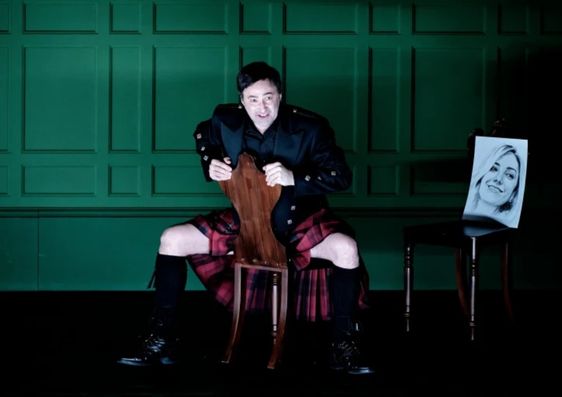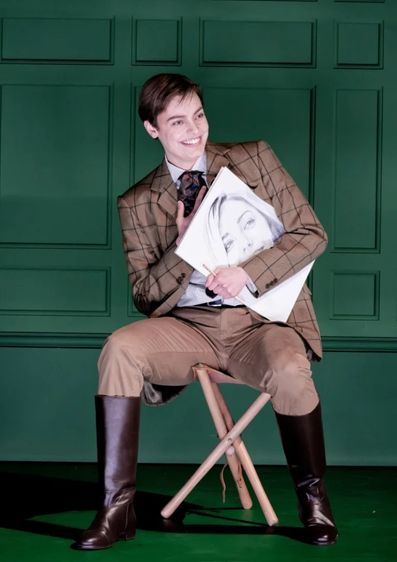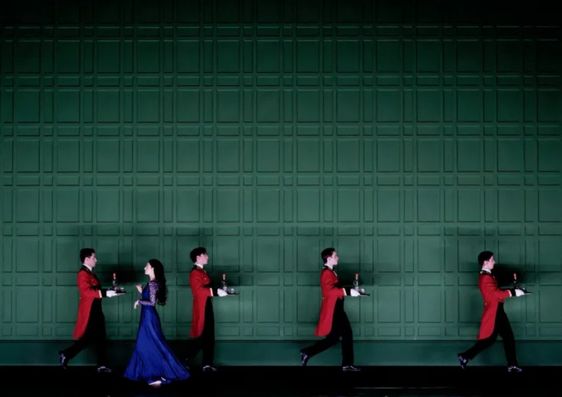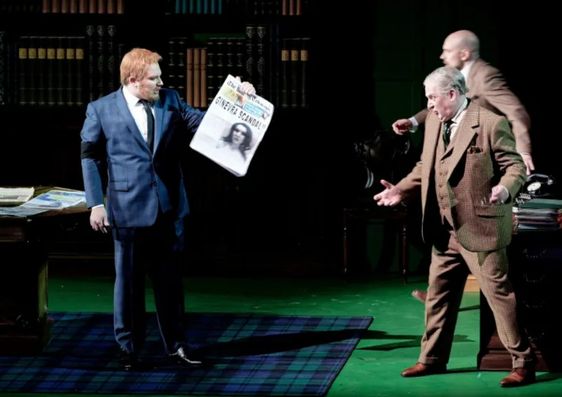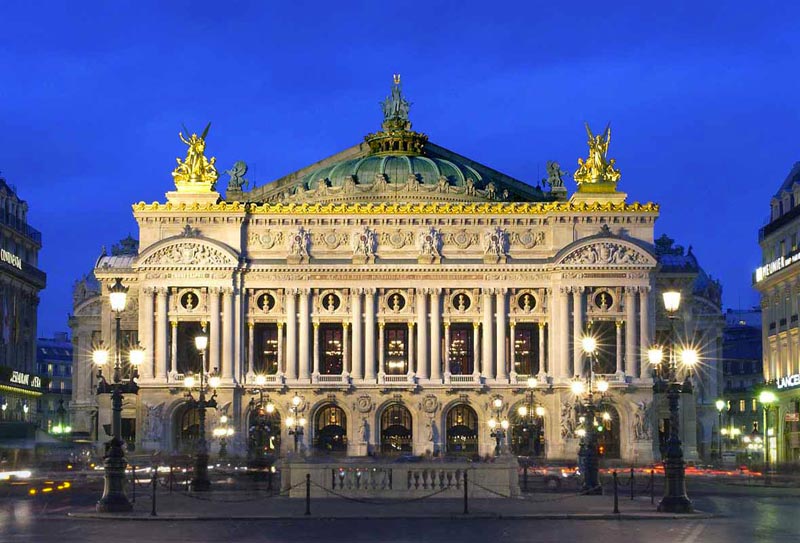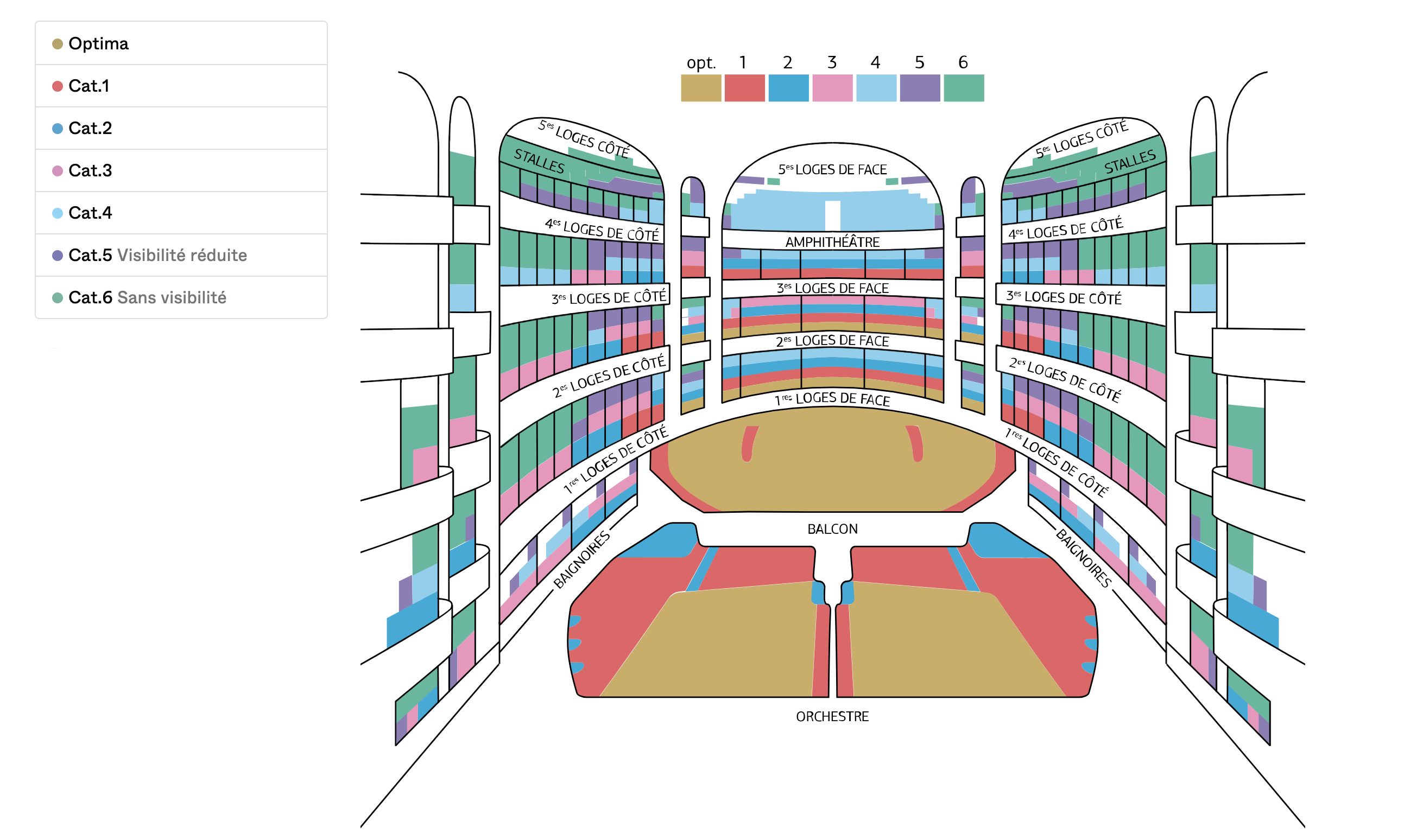Ariodante
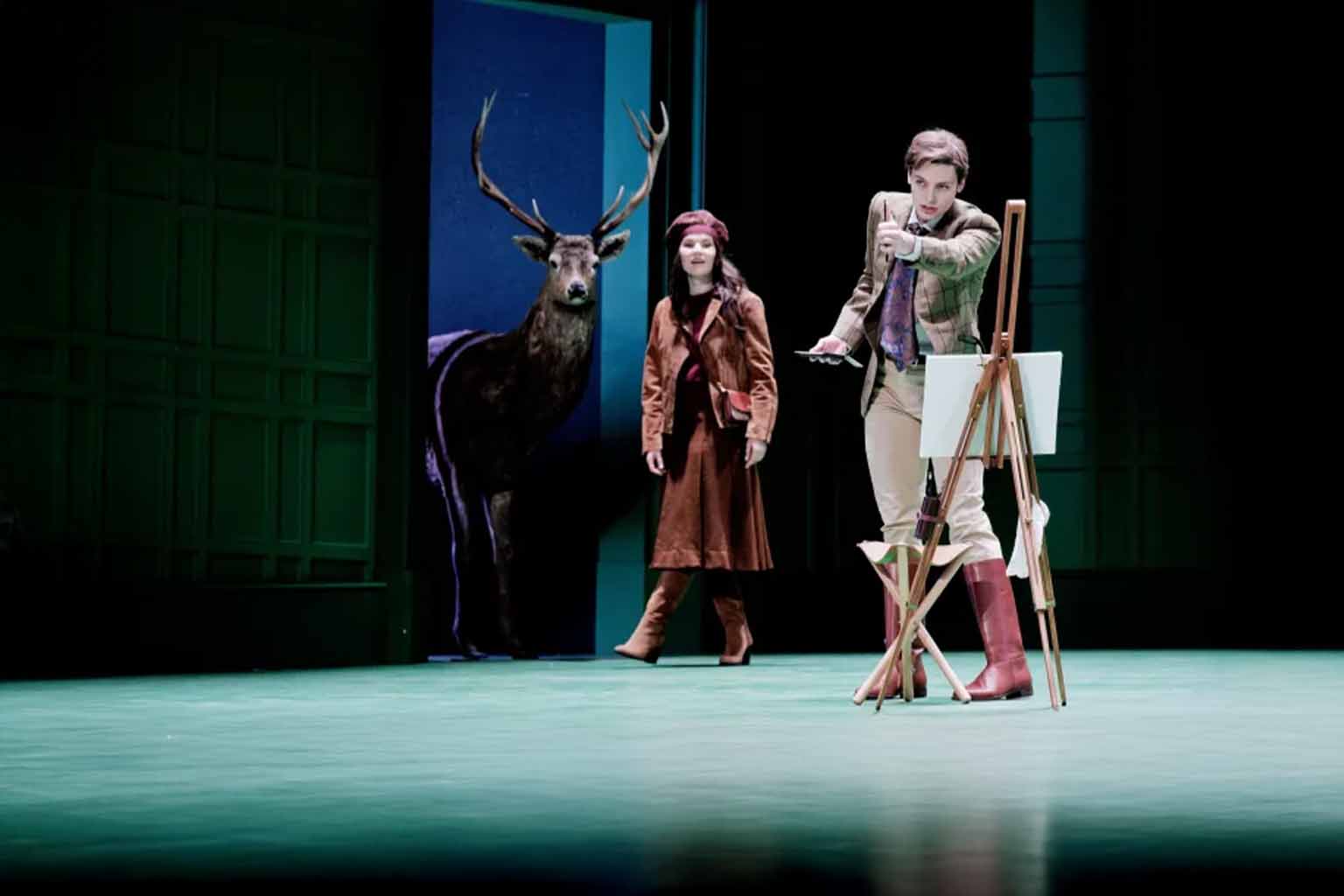
Location
Place de l’Opéra 75009 Paris
Capacity 1900 seats
Duration
3 hr 55 min
With intermission
Details
Opera
For all audiences
In Italian surtitled in French and English
Highlights: Ariodante
Premium Option and Experience at Palais Garnier
Story: Ariodante
Reviews
Opéra Palais Garnier
History and Fun Facts about the Opéra Palais Garnier
One of the most prestigious stages in all of France, the Palais Garnier was constructed between 1860 and 1875, designed by legendary architect Charles Garnier, who was selected among a handful of talented architects in a fierce design competition. The building itself is considered an artful masterpiece, and was one of the most expensive construction projects to come from the Second French Empire under the reign of Napoléon III. The elaborate use of different materials to lend a lavish multicolored facade was typical of many of the works under the rule of Napoléon III, and features sculptures of various figures of Greek mythology. The official inauguration in 1875 was attended by the Mayor of London and Amsterdam, the King Alphonso XII of Spain, and hundreds of members from European high society.
The interior was meticulously designed with intertwining corridors, alcoves and landings to allow for easy movement of large numbers of people; complete with a grand marble staircase and the grand foyer, acting as the drawing room for all of Paris high society and covered in gilded paintings. The auditorium itself is in a traditional Italian horseshoe shape, seating 1900. The stage is the largest in Europe and can accommodate 450 artists, revealed by the opening of the legendary painted curtain. Garnier himself designed the 7-tonne chandelier sparkling above the audience. In 1896, one of the many chandelier counterweights broke free and killed a concierge, the incident that inspired the scenes in the 1910 novel-turned-musical The Phantom of the Opera. The space above the auditorium in the copula dome was once used strictly for cleaning the chandelier, but has since been transformed into a space for opera and dance rehearsals.
The legendary building was initially deemed the Academie Impériale de Musique, yet with the fall of the Second Empire and the start of the Third Republic, this was aptly changed for the Academie Nationale de Musique, which we see written across the exterior facade to this day. Garnier envisioned his design and the transformation of the surrounding area, and to this day the opulence of the Second Empire lives on in this living monument. The avenue de l'Opéra remains the only large Parisian corridor without trees, as Garnier explicitly prevented Haussmann from adorning the street with trees, arguing that his Palais Garnier was to be the main focus. Palais Garnier became the official name in 1989 with the construction of the Opéra Bastille, and the venue now houses primarily ballets.
Fast facts
Capacity: 1,979
Handicap Accessible: Yes – in order to guarantee access to specific locations, we ask that you make your reservation at least 15 days before the performance.
Air conditioning: Yes
Heating: Yes
Coat Check: Yes (free service)
FAQ
How do I get to the opera house Palais Garnier in the 9th arrondissement of Paris?
The Palais Garnier opera house is accessible by:
Metro: Line 3 (station Opéra), line 7 (station Chaussée d’Antin), line 8 (station Madeleine and Opéra), line 9 (station Chaussée d’Antin)
RER: Line A (station Auber)
Address: Place de l’Opéra, 75009 Paris
In case of difficulty, our hotline can be reached during our business hours. Please see the footer of this page for our contact details.
What do I do when I get to Palais Garnier opera house?
We invite you to arrive 45 minutes before the beginning of the opera Ariodante, and present your voucher at the front desk. Palais Garnier’s English-speaking staff members will guide you to your seats.
The concert hall’s doors close 15 minutes after the start of the performance and reopen at intermission if the performance includes one.
If you arrive within 15 minutes after the start of the performance, you will not be allowed to enter the opera house and will be directed to an area with a television where you can watch the first part of the show. You will be able to return to your seats during the intermission if the performance includes one.
How long does the opera, Ariodante, last?
The opera Ariodante at the Palais Garnier opera house lasts approximately 3 hours and 55 minutes, with intermission.
Is Ariodante for an international audience or French speakers?
Both! The Palais Garnier opera house has been welcoming audiences from all over the world for many years. The opera, Ariodante, is sung in its original Italian version. Surtitles are provided in both French and English so that international audiences can appreciate this opera in this incredible Parisian venue.
Where will I be seated, and will I see the surtitles* properly?
At the Palais Garnier opera house, Category Optima and Category 1 provide the most comfortable view of the stage and surtitles. The surtitles are projected above and on the sides of the stage.
*Surtitles (also called supertitles) are the theatre equivalent of subtitles. That’s because in French “sur” means “above”.
Can I choose my seat when booking?
When purchasing tickets, choose your preferred category and you will be allocated the best available seats in that category!
To get a guaranteed view of the French and English surtitles, we recommend purchasing tickets for Category Optima or in Category 1.
Please note that tickets of the same category that are booked during the same purchase session, in the same booking order on our website are always assigned side by side. To be sure of this, make sure all of your tickets are in the same category and are included in your shopping cart at the time of purchase.
If there are no available adjacent seating arrangements, our customer service team will contact you before the booking is confirmed.
At the Paris Opera, the seats are assigned in odd numbers or even numbers. Therefore, if your tickets are consecutive odd numbers or even numbers (For example: 1, 3, 5,...), they will be adjacent.
You can find the seating plan in the theatre’s "photo" section on this page.
Is there a dress code at the Palais Garnier opera house?
There is no specific dress code at Palais Garnier opera house, but proper attire is appreciated. Feel free to dress to impress and reflect the opulent architecture at Palais Garnier!
What is included with my premium ticket at the Palais Garnier opera house?
The Premium tickets are our most exclusive package and include seating in category Optima, the best category in the house, a programme of the show, a glass of champagne, and exclusive access to the magnificent Salon Liebermann.
Your programme: At the Palais Garnier, you may obtain your programme in the main shop as well as at the programme stands located in the entry hall and at the bottom of the prestigious Grand Staircase.
Your glass of champagne: You are welcome to enjoy your complementary glass of champagne either before the performance or during intermission. Champagne will be available at the public bars or in the exclusive Salon Liebermann. The Salon is located on the right-hand side of the Grand Foyer, behind the fireplace.
I bought premium tickets for Ariodante and I haven’t received them yet. Is this normal?
Yes, it’s completely normal! As the premium tickets for Ariodante include exclusive add-ons, your order will first be created as a pre-booking so the Paris Opera can assign your seats and prepare your exclusive package.
You may see a pre-charge on your card but you can rest assured that we will not charge your card until the booking is validated by the Paris Opera. After the tickets are confirmed, you will receive your tickets by email.
Given the large number of requests the Paris Opera receives, this process usually takes two business days but can take up to six days maximum. After six days if your order has not been validated, it will be cancelled, the pre-charge will disappear, and you will not be charged.
Do the listed prices include all costs?
Yes. The amount indicated on our website is the final price: no additional fees will be added during your purchase.
Please note: the price paid on our site includes all applicable fees and taxes and may differ from the face value of the ticket.
Is Theatre in Paris an official reseller?
Yes. Theatre in Paris is an official partner of the Opéra national de Paris and offers tickets for all shows of the season, at both Opéra Bastille and Palais Garnier, with multilingual customer service, including English and French, and a variety of offers: tickets only or premium packages. And sometimes, we even have tickets available when the show is sold out everywhere else!



